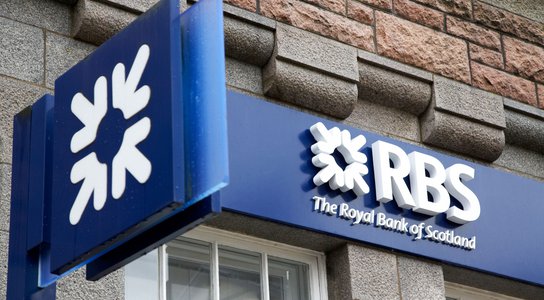Global Witness have today called on the US Treasury Department to take action to close the loophole in US anti-money laundering rules that is alleged to have allowed more than US $500 million of money from the 1MDB corruption scandal into the US. The call comes as Global Witness publishes a new analysis, The Real Wolves of Wall Street, focusing on the role of the bankers, lawyers and auditors in enabling Malaysia’s 1MDB corruption scandal as disclosed by the US Department of Justice's evidence in its civil forfeiture case. The 1MDB scandal may have robbed the Malaysian people of an estimated US$4.5 billion.
“Our analysis shows that the international anti-money laundering system is not working properly,” said Global Witness Senior Campaigner Murray Worthy. “The 1MDB scandal would simply not have been possible if the system worked as it is supposed to; the financial professionals involved would have spotted this dirty cash and prevented the money from ever being taken.”
According to the US Department of Justice, the billions embezzled from 1Malaysia Development Berhad (1MDB), a government owned-company, were spent on luxury properties, high-end art and lavish lifestyles, as well as payments to the Malaysian Prime Minister Najib Razak. Most famously, money taken from 1MDB allegedly funded the Leonardo DiCaprio film The Wolf of Wall Street.
The analysis of the evidence in the 1MDB case published today highlights how those involved in the scandal used the client accounts of two major US law firms; Shearman and Sterling and DLA Piper, to move hundreds of millions of dollars into the US. Funds moved through the firms’ client accounts were used to buy the Time Warner Penthouse in New York, a private jet and pay for multi-million dollar gambling expenses.
Lawyers in the US are not required to do customer due diligence on their clients in the same way that banks do, nor do they have to investigate client conduct unless they believe their client is engaging in illegal activity. This is particularly problematic for lawyer client accounts as the banks that hold these accounts in turn only have to do checks on the law firm, not its clients. The result is that client accounts can be used as a way of getting money into the US system without going through existing anti-money laundering safeguards, as was the case in the 1MDB scandal, without the banks or the lawyers having done anything wrong.
Worthy said: “We’re calling on the treasury to close this enormous loophole in the rules to stop dirty money flowing into the US. This case demonstrates just how easy it can be to escape US anti-money laundering rules through lawyers’ client accounts.”
Global Witness have written to the Treasury Department calling for it to close the loophole posed by US lawyers’ client accounts, by requiring financial institutions to conduct anti-money laundering checks on those using them.
As there is currently no law requiring US lawyers to conduct due diligence there is no suggestion either the law firms Shearman and Sterling or DLA Piper broke or failed to apply anti-money laundering rules.
Worthy adds; “This is not the first time we have seen lawyer’s clients’ accounts used to facilitate corruption and if nothing is done to close this glaring loophole, then it will not be the last.”
/ ENDS
Contacts
Notes to editor:
- For a brief summary of the 1MDB corruption scandal see: http://www.bbc.co.uk/news/world-asia-33447456
- The US Department of Justice asset seizure case is available at https://www.justice.gov/opa/pr/us-seeks-recover-approximately-540-million-obtained-corruption-involving-malaysian-sovereign
- Law firms often have pooled accounts they open with banks they use to temporarily hold funds on behalf of clients for whom they are brokering deals, such as the sale or purchase of real estate. When lawyers hold accounts for their clients, the banks that hold these accounts in turn only have to do checks on the law firm, not its clients. So, neither the bank nor the law firm are required to do checks on the clients using these accounts.
You might also like
-
Extended Report The Real Wolves of Wall Street
The banks, lawyers and auditors at the heart of Malaysia’s biggest corruption scandal.
-
Campaign Corruption and money laundering
Ill-gotten gains don’t disappear by themselves. Dictators, warlords and other criminals need ways to hide their identity and move dirty cash around the world.
-
Press release UK banking authority urged to act over $4.5 billion ‘Wolf of Wall Street’ corruption scandal
Global Witness and leading anti-corruption MP Margaret Hodge have today called on the UK’s Financial Conduct Authority to take action over the role of RBS and Standard Chartered in handling more than US$2 billion of embezzled funds in 1MDB corruption scandal.